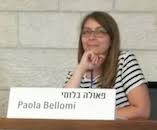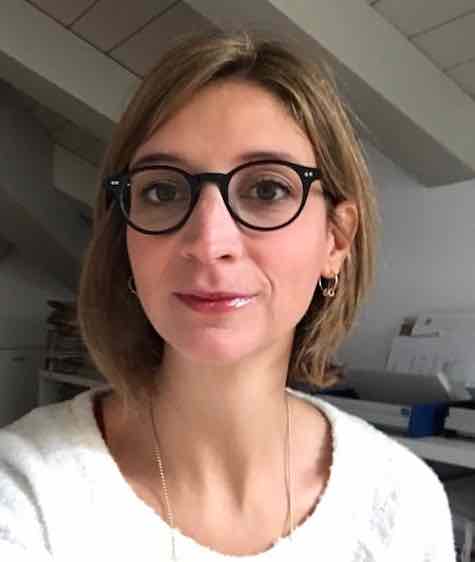Studying at the University of Verona
Here you can find information on the organisational aspects of the Programme, lecture timetables, learning activities and useful contact details for your time at the University, from enrolment to graduation.
Academic calendar
The academic calendar shows the deadlines and scheduled events that are relevant to students, teaching and technical-administrative staff of the University. Public holidays and University closures are also indicated. The academic year normally begins on 1 October each year and ends on 30 September of the following year.
Course calendar
The Academic Calendar sets out the degree programme lecture and exam timetables, as well as the relevant university closure dates..
| Period | From | To |
|---|---|---|
| I SEMESTRE | Oct 3, 2016 | Jan 21, 2017 |
| II SEMESTRE | Feb 27, 2017 | Jun 10, 2017 |
| Session | From | To |
|---|---|---|
| Lingue - SESSIONE INVERNALE | Jan 23, 2017 | Feb 25, 2017 |
| Lingue - SESSIONE ESTIVA | Jun 12, 2017 | Jul 29, 2017 |
| Lingue - SESSIONE AUTUNNALE | Aug 21, 2017 | Sep 23, 2017 |
| Session | From | To |
|---|---|---|
| Lingue - Sessione di laurea invernale | Apr 3, 2017 | Apr 8, 2017 |
| Lingue - Sessione di laurea estiva | Jul 10, 2017 | Jul 15, 2017 |
| Lingue - Sessione di laurea autunnale | Dec 18, 2017 | Dec 21, 2017 |
| Lingue - sessione di laurea invernale | Mar 23, 2018 | Mar 29, 2018 |
| Period | From | To |
|---|---|---|
| FESTA DI OGNISSANTI | Nov 1, 2016 | Nov 1, 2016 |
| FESTA DELL'IMMACOLATA CONCEZIONE | Dec 8, 2016 | Dec 8, 2016 |
| Vacanze Natalizie | Dec 23, 2016 | Jan 7, 2017 |
| Vacanze Pasquali | Apr 14, 2017 | Apr 18, 2017 |
| Festa della Liberazione | Apr 25, 2017 | Apr 25, 2017 |
| Festa dei Lavoratori | May 1, 2017 | May 1, 2017 |
| FESTA DEL SANTO PATRONO SAN ZENO | May 21, 2017 | May 21, 2017 |
| Festa della Repubblica | Jun 2, 2017 | Jun 2, 2017 |
| Vacanze Estive | Aug 14, 2017 | Aug 19, 2017 |
| Description | Period | From | To |
|---|---|---|---|
| ANNUALE | ANNUALE | Oct 3, 2016 | Jun 10, 2017 |
Exam calendar
Exam dates and rounds are managed by the relevant Foreign Languages and Literatures Teaching and Student Services Unit.
To view all the exam sessions available, please use the Exam dashboard on ESSE3.
If you forgot your login details or have problems logging in, please contact the relevant IT HelpDesk, or check the login details recovery web page.
Should you have any doubts or questions, please check the Enrollment FAQs
Academic staff
 valentina.adami@univr.it
valentina.adami@univr.it
 paola.bellomi@univr.it
paola.bellomi@univr.it
 daniele.beltrame@univr.it
daniele.beltrame@univr.it
 riccardo.cella@univr.it
riccardo.cella@univr.it
 elisa.dallarosa@univr.it
elisa.dallarosa@univr.it
 sara.dattoma@univr.it
sara.dattoma@univr.it
 federico.febbroni@univr.it
federico.febbroni@univr.it
 veronica.gobbato@univr.it
veronica.gobbato@univr.it
Hernandez Arocha Hector Eutimio
 hector.hernandez@univr.it
hector.hernandez@univr.it
 gianpaolo.lazzer@univr.it
gianpaolo.lazzer@univr.it
 stefania.montemezzo@univr.it
stefania.montemezzo@univr.it
 anna.morbiato@unive.it
anna.morbiato@unive.it
 chunye.niu@univr.it
chunye.niu@univr.it
 sara.paolini@univr.it
sara.paolini@univr.it
 valentina.savietto@univr.it
valentina.savietto@univr.it
 fabioantonio.scrignoli@univr.it
fabioantonio.scrignoli@univr.it
 alice.valdesalici@univr.it
alice.valdesalici@univr.it
Study Plan
The Study Plan includes all modules, teaching and learning activities that each student will need to undertake during their time at the University.
Please select your Study Plan based on your enrollment year.
1° Year
| Modules | Credits | TAF | SSD |
|---|
1st foreign language2nd foreign language1st foreign literature and cultureGerman literature and culture 1
2nd foreign literature and cultureGerman literature and culture 1
2° Year activated in the A.Y. 2017/2018
| Modules | Credits | TAF | SSD |
|---|
Italian literature and culture
Geography of communication and international trade
Modern and Contemporary Economic History
Theory and Techniques of communication
1st foreign language2nd foreign languageFirst language foreign literature and culture or a related courseEnglish literature and culture 2
German literature and culture 2
Spanish literature and culture 2
Second language foreign literature and culture or a related courseEnglish literature and culture 2
German literature and culture 2
Spanish literature and culture 2
3° Year activated in the A.Y. 2018/2019
| Modules | Credits | TAF | SSD |
|---|
Comparative and European Public law
Principles of international marketing
1st foreign language2nd foreign language| Modules | Credits | TAF | SSD |
|---|
1st foreign language2nd foreign language1st foreign literature and cultureGerman literature and culture 1
2nd foreign literature and cultureGerman literature and culture 1
| Modules | Credits | TAF | SSD |
|---|
Italian literature and culture
Geography of communication and international trade
Modern and Contemporary Economic History
Theory and Techniques of communication
1st foreign language2nd foreign languageFirst language foreign literature and culture or a related courseEnglish literature and culture 2
German literature and culture 2
Spanish literature and culture 2
Second language foreign literature and culture or a related courseEnglish literature and culture 2
German literature and culture 2
Spanish literature and culture 2
| Modules | Credits | TAF | SSD |
|---|
Comparative and European Public law
Principles of international marketing
1st foreign language2nd foreign language| Modules | Credits | TAF | SSD |
|---|
Legend | Type of training activity (TTA)
TAF (Type of Educational Activity) All courses and activities are classified into different types of educational activities, indicated by a letter.
German language 2 [Tur] (2017/2018)
Teaching code
4S002920
Teacher
Coordinator
Credits
9
Language
German
Scientific Disciplinary Sector (SSD)
L-LIN/14 - LANGUAGE AND TRANSLATION - GERMAN
Period
Semester 2 dal Feb 26, 2018 al Jun 9, 2018.
Learning outcomes
The main aim of this course is to introduce students to the analysis of the German morphological system.
On successful completion of this course students are able to:
- describe the basic categories of German morphology;
- characterize and explain the main morphological processes of German;
- describe the most important differences between the main morphological processes of German and Italian;
- apply the acquired knowledge to specific examples, that is words of the common language and of the language for specific purposes.
Program
"Introduction to German morphology"
This course, which does not have as a prerequisite any specific background in linguistics, introduces students to the study of German morphology with emphasis on description and analysis. Students will become familiar with central concepts such as ‘Morphem’, ‘Morph’, ‘Allomorph’, ‘Fugenelement’, ‘Ablaut’, ‘Umlaut’, ‘Wortbildungsprozess’, ‘Produktivität’, etc. Word structure and word structure rules will be described and scientific analysis techniques will be practiced. In particular German-Italian similarities and contrasts in word formation processes will be highlighted.
This course is taught in German. Students not attending the course should contact the Professor in order to get a detailed explanation of their program.
Teaching method: frontal teaching.
Bibliographic references
Alber, Birgit (2004). Einführung in die Morphologie des Deutschen. Trento: UNI Service. (Ristampa 2015. Verona: QuiEdit). The book is for students attending the course.
Römer, Christine; Matzke, Brigitte (2010). Der deutsche Wortschatz. Struktur, Regeln und Merkmale. Tübingen: Narr Verlag. Students not attending the course have to read the book up to page 169.
Additional material is available on the e-learning platform of the course.
The following books are for those students who have difficulties in reading the German texts:
Graffi, Giorgio e Sergio Scalise (2002). Le lingue e il linguaggio. Introduzione alla linguistica, Bologna, Il Mulino.
Sergio Scalise (1994). Morfologia. Bologna, Il Mulino.
| Author | Title | Publishing house | Year | ISBN | Notes |
|---|---|---|---|---|---|
| Römer, Christine; Matzke, Brigitte | Der deutsche Wortschatz. Struktur, Regeln und Merkmale. | Narr Verlag | 2010 | ||
| Alber, Birgit | Einführung in die Morphologie des Deutschen (Edizione 2) | QuiEdit | 2015 | 978-88-6464-292-5 | |
| Graffi, Giorgio; Scalise, Sergio | Le lingue e il linguaggio. Introduzione alla linguistica (Edizione 3) | Il Mulino, Bologna | 2013 | 9788815241795 | |
| Scalise, Sergio | Morfologia | Il Mulino | 1994 |
Examination Methods
Exams are only written and in German. During the examination students should answer two questions and solve some exercises. Students not attending the course should contact the Professor in a timely manner, in order to get a detailed explanation of their program and written exam. The written exam will be similar to the one of the students attending the course. Linguistic competence required: level B2 (CEFR), certified either by the Centro Linguistico di Ateneo (CLA) or by any other authorized testing centre. Students taking this exam must have completed the language and literature exams of the first and second year. The final grade is the mean of the grade of this theoretic module and of the grade of the language certificate (B2).
Type D and Type F activities
To discover all the teaching activities accredited by the foreign teaching college click here
Career prospects
Module/Programme news
News for students
There you will find information, resources and services useful during your time at the University (Student’s exam record, your study plan on ESSE3, Distance Learning courses, university email account, office forms, administrative procedures, etc.). You can log into MyUnivr with your GIA login details: only in this way will you be able to receive notification of all the notices from your teachers and your secretariat via email and soon also via the Univr app.
Student login and resources
Gestione carriere
Assegnazione tutore
Attività accreditate D/F
Calendario didattico dettagliato
Cambio lingua curriculare
Competenze informatiche
Competenze linguistiche (prima e seconda lingua)
Competenze linguistiche in triennale (terza lingua CFU F)
Compilazione del piano didattico
Corso di Lingua portoghese
Erasmus+ e altre esperienze all'estero
Linguistic training CLA
Presentazione dei corsi di studio e Open day
Graduation
List of theses and work experience proposals
| Stage | Research area |
|---|---|
| PROGETTO MAMBRINO Stage per bibliografia | Various topics |
Saperi minimi
Stage e tirocini
Nel piano didattico della laurea triennale in Lingue per il turismo e il commercio internazionale (L12) è previsto un periodo di stage obbligatorio (CFU 6) in organizzazioni imprenditoriali.
Le attività di stage sono finalizzate a far acquisire allo studente una conoscenza diretta in settori di particolare interesse per l’inserimento nel mondo del lavoro e per l’acquisizione di abilità professionali specifiche.
Le attività di stage sono svolte sotto la diretta responsabilità di un singolo docente presso studi professionali, enti della pubblica amministrazione, aziende accreditate dall’Ateneo veronese.
I crediti maturati in seguito ad attività di stage saranno attribuiti secondo quanto disposto nel dettaglio dal “Regolamento d’Ateneo per il riconoscimento dei crediti maturati negli stage universitari” vigente.
- Tutte le informazioni in merito agli stage per futuri studenti sono disponibili alla pagina Stage e tirocini.
- Tutte le informazioni in merito agli stage per studenti iscritti sono pubblicate in MyUnivr - come fare per - stage e tirocini.
- Tutte le informazioni in merito agli stage per le aziende sono disponili alla pagina Stage e tirocini per azienze.
Ulteriori informazioni al seguente link https://www.univr.it/it/i-nostri-servizi/gestione-carriere-studenti-lingue-e-letterature-straniere/stage-e-tirocini-lingue-e-letterature-straniere


 +39 045802 8409
+39 045802 8409
























































